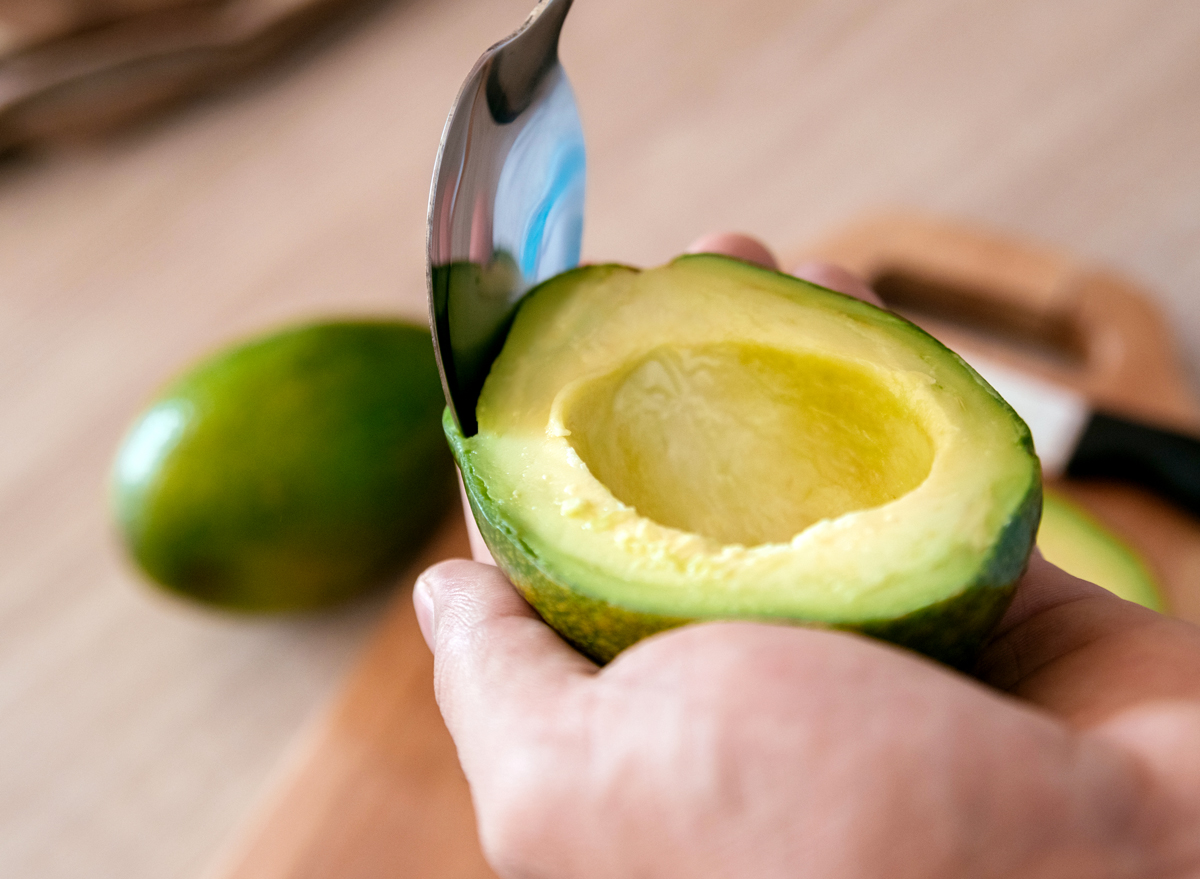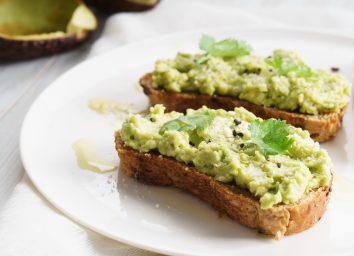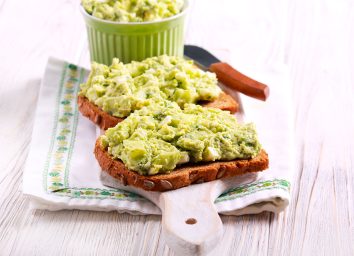The #1 Reason Why You Shouldn’t Eat Avocado

If you’ve graduated from avocado toast to avocado smoothies, avocado mac ‘n’ cheese, and avocado-topped pizza, you may have taken this trendy, fat-filled fruit a little too far. The number one reason why you shouldn’t eat avocado is that you may be eating too much avocado.
The Hass Avocado Board has a name for folks like you: “Super avocado shoppers.” Super avocado-purchasing households spend $26 or more annually on avocados and make up 70% of all avocado purchases. So odds are that if you eat avocados, you’re eating a lot of avocados.
It’s hard to find reasons not to join the avocado-obsessed when you consider the scientific research—and thousands of articles—touting the health benefits of avocado. For example, one oft-cited study, a 2013 analysis of data from the National Health and Nutrition Examination Survey (NHANES), found that people who regularly eat avocados have better diet quality and nutrient intake than others, lower body weight, lower BMI (body mass index), lower intake of added sugars, higher levels of HDL (good) cholesterol and a lower risk of metabolic syndrome.
So, what’s not to love about this creamy, delicious heart-healthy fat, the base for our beloved guac and the fat foundation of so many recipes? The answer: too much of a good thing.
While avocados are nutritious, rich in fiber, and heart-healthy monounsaturated fats, they are quite calorie-dense. The recommended serving size is just a third of a fruit, but how often do you mash just a third on your toast or top your salad with just a few slices? Most restaurants serve at least half a fruit, often a whole avocado.
Having avocado several times a day and/or adding avocado to meals that already contain fats, can easily add up to more calories and fat grams than you are aware of. When you bring more calories into your body than it burns off in a day, those extra calories will be stored as fat—even if they are healthy calories.
Consuming too many calories can increase your risk of obesity, type 2 diabetes, and coronary artery disease. A standard avocado contains 322 calories. For perspective, that’s more calories than a McDonald’s hamburger. And if you’re eating your avocado in guacamole, realize that you may be consuming more than one avocado and its calorie equivalent or more in fried tortilla chips.
Even eating “healthy foods” can turn into an unhealthy practice if you overeat them, says dietitian-nutritionist Ilana Muhlstein, RD, author of You Can Drop It! How I Dropped 100 Pounds Enjoying Carbs, Cocktails & Chocolate—And You Can Too! “I always thought sushi was a healthy choice until I recognized that sushi is the carb equal to several slices of bread,” she says. (For more surprising comparisons, Muhlstein shares more in 7 Worst “Healthy” Foods You’re Eating, According to a Dietitian.)
Muhlstein doesn’t emphasize healthy fats as a weight-loss strategy in her book or to her clients. “Because they are so calorie-dense, they should not be the main focus of how you eat,” she says. “Fill your plate with veggies most, protein at every meal, fiber-filled carbs, and flavorful accessories and you’ll be in great shape to lose weight.”
For more tips from Mulhstein and other people in the know check out 17 Healthy Eating Habits to Start Today, According to Our Medical Experts.
For more healthy eating news, make sure to sign up for our newsletter!








